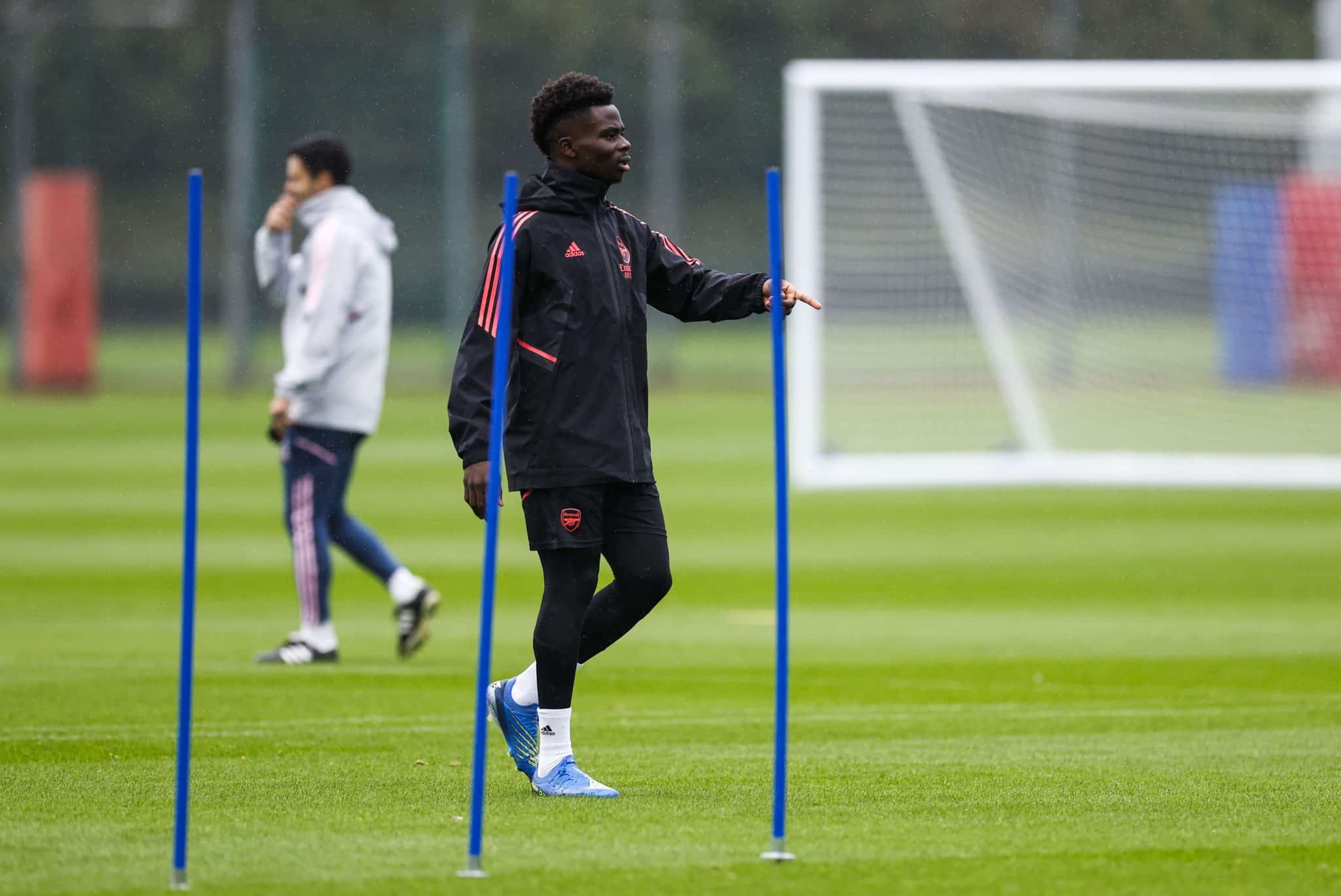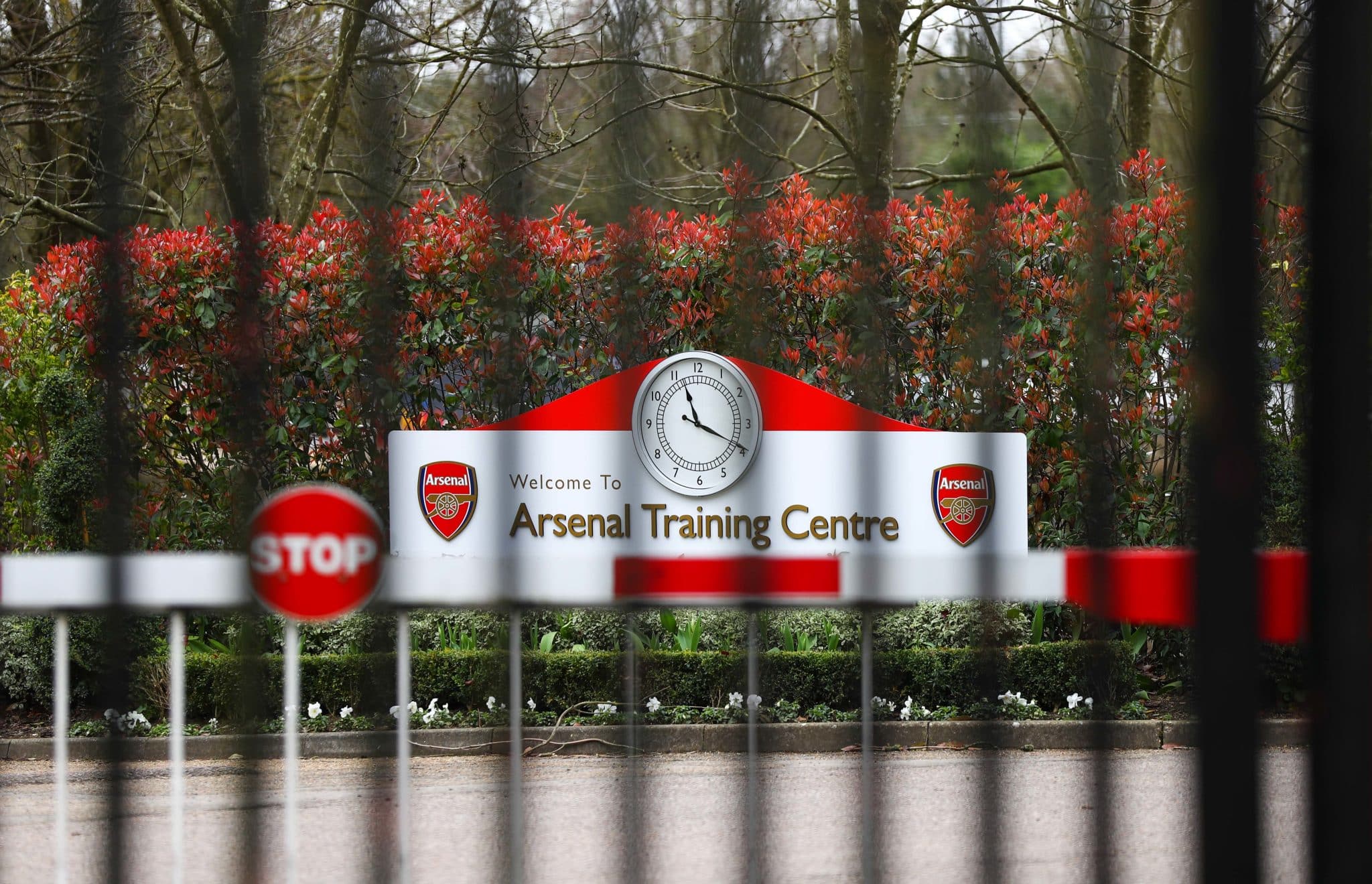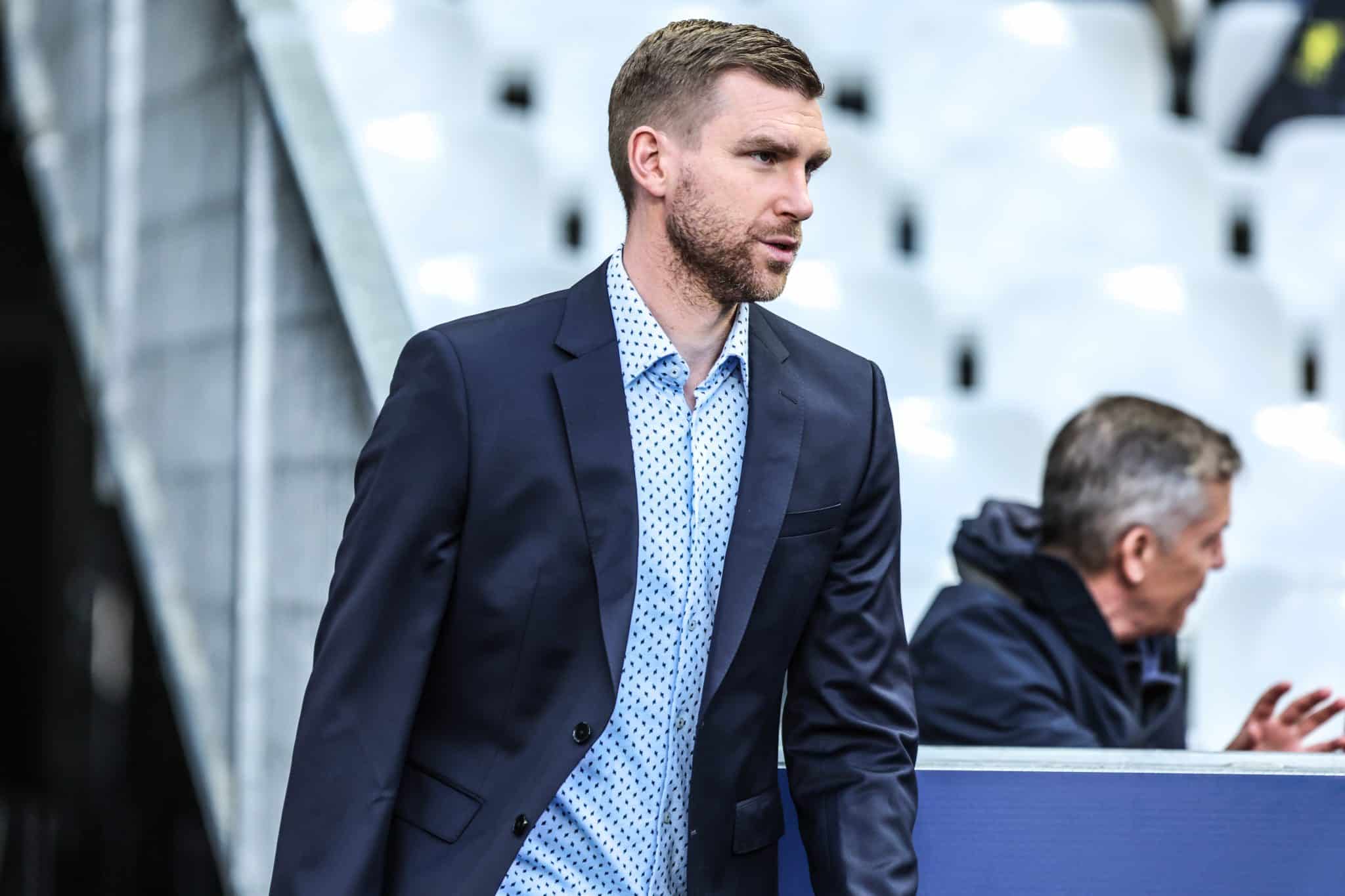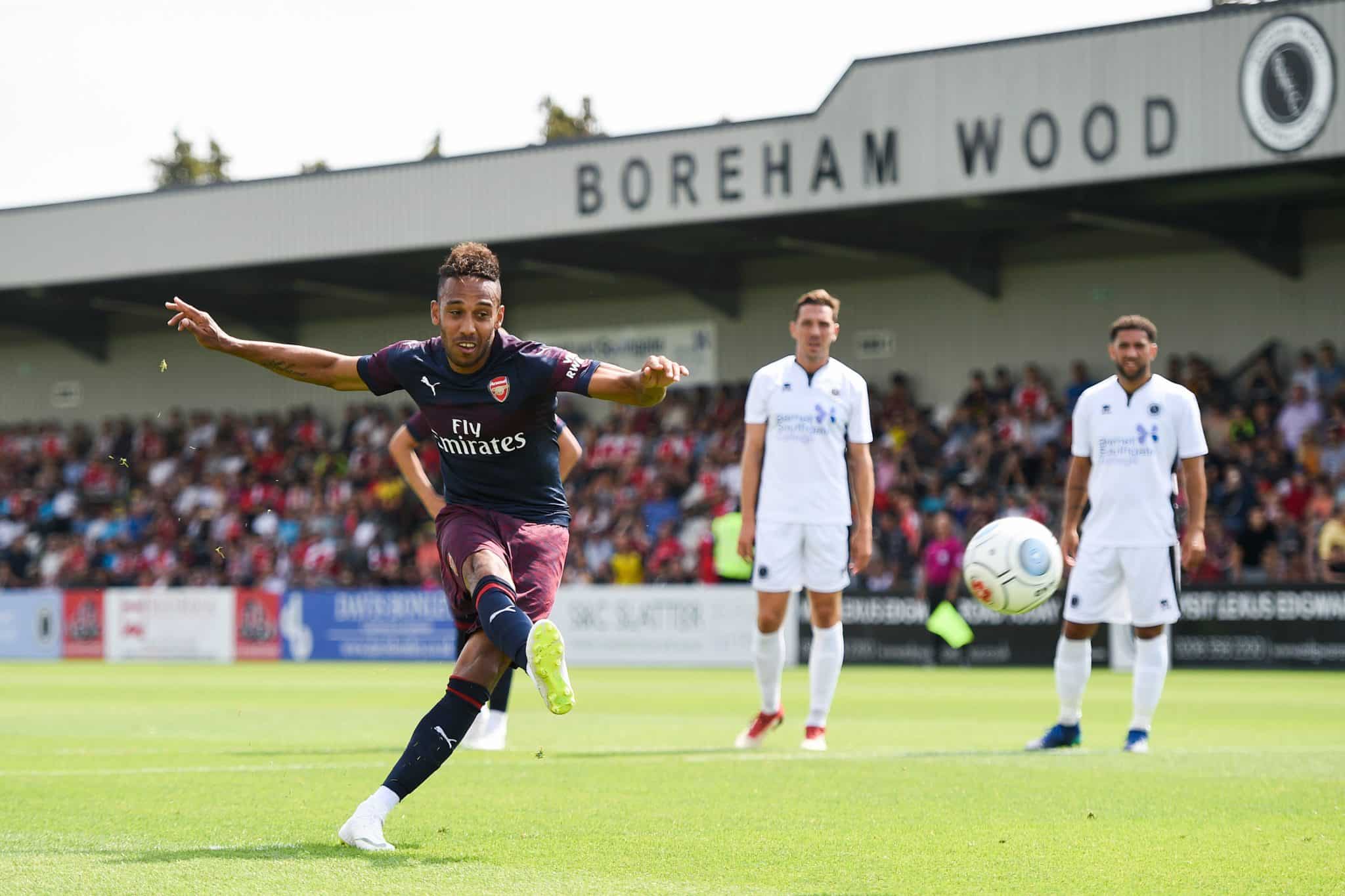At Arsenal, the heartbeat of youth development resonates from Hale End in Walthamstow, London.
It is here that the budding talents within their academy teams take their first step on the path to becoming first-team, professional footballers, whether that be at Arsenal or elsewhere.
For those considered good enough, a transition to the esteemed London Colney will take place when they earn a scholarship with the club. This marks a pivotal step in their development as they navigate the professional landscape.
Arsenal youth training ground
The Arsenal youth training ground at Hale End has kick-started the careers of many footballers, who are now household names in English football. In yesteryear, think Tony Adams and Jack Wilshere while in more recent times, the obvious example is Bukayo Saka.
Since Saka came to limelight, the Arsenal academy appear to be producing stars every year for the past couple of years.
Ethan Nwaneri broke through, becoming the youngest player in Premier League history when he came on as a substitute aged 15 years and 181 days in 2022 against Brentford.
By the 2024-25 season, Nwaneri and his close pal Myles Lewis-Skelly were full blown first teamers, with Lewis-kelly nominated for the PFA Young Player of the Year award at the end of the campaign.
Both players also made the 25-man shortlist for the 2025 Golden Boy award after their breakthrough seasons.
While the world was still showering praise on Hale End for its incredible talent production, another prodigy, Max Dowman, took centre stage at the start of the 2025-26 season, dazzling everyone with his composure, confidence, and elite-level ability against top opposition.
He became the second youngest player in the league's history at 15 years and 235 days after coming on against Leeds United, only behind Nwaneri.

All of these stars have been produced at the academy training ground at Hale End, which is also considered the home pitch of the Arsenal under-18s team. The under-19s and 21s, meanwhile, play their home matches at Boreham Wood's Meadow Park.
Many Arsenal academy graduates will call Hale End home from under-9s football right the way through to under-16s. Those ready to make the next step up at this point are then given scholarships to continue their development at London Colney.
Inside Hale End
Hale End boasts several full-size pitches, among them an exhibition pitch mirroring the Desso surface and dimensions of Emirates Stadium. Each pitch is named after the original four stands at Highbury, paying homage to Arsenal's enduring commitment to nurturing local talent. The central building encompasses a gymnasium, an analysts' suite, a restaurant area, changing rooms, classrooms, offices, and medical facilities.
Notably, the David Rocastle indoor sports hall features a 3G surface and a wrap-around design that immerses players in an environment reminiscent of playing at the Emirates Stadium.
Hale End serves as the cradle for emerging talents, guiding youngsters on a developmental journey from U9s to U16s. Those demonstrating readiness for the next level ascend to become paid scholars at London Colney. Meanwhile, those not selected are released to explore opportunities elsewhere.

The U15s undergo training four times a week, complemented by matches. Structured training programmes spanning six weeks, broken into two-week blocks, are a norm across various age groups.
The U16s have sessions meticulously recorded, with footage sent to analysts for insightful pre-match presentations. Remarkably, even at the U9s level, players gain access to session videos, fostering a keen desire for improvement.
The academy's legacy is on display in the canteen, where players pass the Arsenal Academy Debutants board during mealtimes. Established in 1954, this board is adorned with small gold plaques, each commemorating a graduate's first-team debut.

Former Arsenal captain Per Mertesacker, the current academy manager, has steered the academy towards a new development model. Mertesacker emphasises four pillars crucial for player development:
- Lifelong Learner – Education First: Balancing football and education to mould well-rounded individuals.
- Most Efficient Mover: Focusing on physical development and efficiency in movement.
- Champion Mentality: Instilling resilience and a winning mindset by learning from challenges.
- Effective Team Player: Nurturing the ability to contribute positively to team dynamics.
Upon earning a scholarship, players transition to a more full-time model at Arsenal's main training ground, the Arsenal Training Centre or London Colney.
From Hale End to London Colney
At the pinnacle of Arsenal's youth setup is the Under-21 squad, honing their skills at the Arsenal Training Centre in London Colney, Hertfordshire.
Where do Arsenal U21s play?
The majority of their home games are played at Meadow Park, the home ground of Boreham Wood FC. Here, a new North Bank terrace was opened in 2019, sharing the name of one of the stands from Arsenal's former home, Highbury.

Where is the London Colney training ground?
Located around 17 miles from Arsenal's Emirates Stadium, the London Colney facility, inaugurated in October 1999 under Arsene Wenger's oversight, stands as a testament to the club's commitment to excellence.
The state-of-the-art facility boasts ten full-size pitches, each equipped with undersoil draining and an automated sprinkler system. Notably, undersoil heating has been installed for two of the pitches.
Inside Hale End documentary
If you want to know more about Arsenal's Hale End Academy, a fantastic documentary was released in 2022 by Arsenal and Adidas called Inside Hale End.
With six episodes freely available on YouTube, cameras follow Per Mertesacker (Academy manager) and the club's U15s and U16s coaches as they work with the next generation at the London club.
Who are the current Arsenal Academy coaches?
The coaching staff at Arsenal Academy features top talents in football, some of which are former players of the Gunners. At the top of the coaching staff is Mertesacker, a former defender at Emirates Stadium who retired in 2018. He is currently the Academy manager. The player was revealed as Arsenal Academy's head coach ahead of the 2017/18 EPL season, assuming the role in July the same year he retired from playing football.
While Mertesacker did not join through the youth system, he played most of his active years at the Emirates Stadium, so as someone who understands how the academy system works at Arsenal, Mertesacker is currently playing a huge role in shaping the future of football stars bred at the Hale End.
At the onset of his coaching career at Arsenal Youth, Mertesacker introduced a coaching program in partnership with Save the Children, a UK-based non-governmental organization. The program was tailored around helping coaches detect PSTD.
Luke Hobbs is currently the Head of Coaching at the academy while Lee Herron serves as the head of Youth Recruitment. Others playing different roles at Arsenal Academy are Matt Henly (Head of Education), Perry Stewart (Head of Academy Performance), Will Oldham (Head of Academy Operations), Mark Walter (Senior Academy Player Care Manager), Tia Forsyth (Senior Safeguarding Manager), Ken Gillard (PDP Lead Coach), and Kimberley Gaynor (HR Business Partner).
On the coaching front, Max Porter leads the Under-21s, while Adam Birchall oversees the Under-18s. The Under-17s are managed by Adam Pilling, with Michael Donaldson in charge of the Under-16s, and Craig Smith guiding the Under-15s.
Simon Copley handles the Under-14s, while Josh Hinckson from Grenada manages the Under-13s. The younger categories are led by Kieron Lewis (U12), Lewis Goater (U11), Jhovan Bruce de Rouche (U10), and Derry Hart, who heads the Under-9s.
